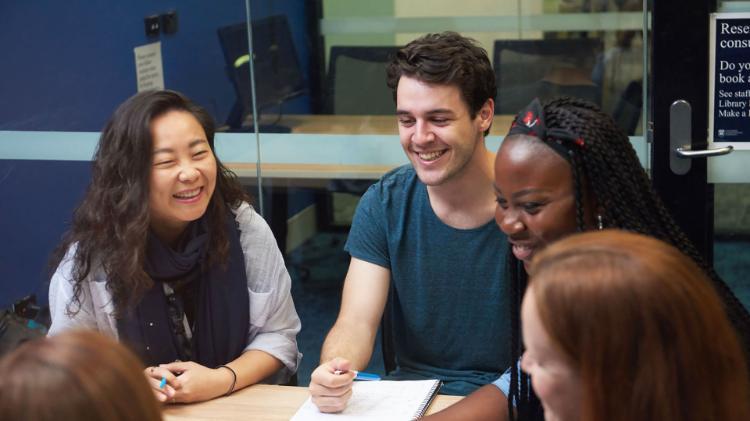The Peer Learning Program provides a supportive learning environment facilitated by Peer Learning Leaders who have previously completed and excelled in UOW College subjects. These leaders are passionate about helping others.
Peer Learning Program
Peer Learning support is available in a range of Academic subjects and Vocational courses. English language students can find support from Peer Learning Leaders in the Learning Hub.
This program reflects our commitment to academic success and student well-being, offering valuable assistance through experienced and accomplished Peer Learning Leaders across a variety of study areas.
I feel it’s very rewarding work and I know when I was a student, I took advantage of the Peer Learning Leaders to help me. The College set me up for success and I tell everyone, even if they don’t need to go through the College they should because it was the foundation that I needed in order to create a bright future for myself.
Types of Peer Learning support:
If you need some extra help, our learning support seamlessly integrates into selected subjects’ tutorials or computer labs. Get additional consultations with Peer Leaders right in your regular classes, enhancing your learning experience within the familiar classroom setting.
Join our one-hour study groups led by Peer Learning Leaders. Whether on-campus or online, these sessions break down assessments into manageable steps, providing valuable guidance to boost your understanding of course content.
Schedule an additional consultation with our friendly Peer Leaders based on your needs and their availability. Come to the Learning Hub on the Wollongong campus or reach out to your Student Mentors, Student Advisor, Student Support Officer, or Course Progress Advisor, and they'll connect you with the UOW College Peer Learning Program Coordinator.
Benefits of attending Peer Learning support
The program aims to help students learn by:
- Reinforcing your understanding of course content, making complex topics more manageable.
- Improving study habits and skills through tailored support, empowering your learning journey.
- Helping students to navigate challenges with insights from experienced Peer Learning Leaders.
- Providing assistance in preparing for exams, ensuring confidence in assessments.
- Providing feedback on your written work before submission for refining and improvement.
By participating in the Peer Learning Program, you not only gain academic support but also become a better learner with a holistic approach to learning that extends beyond the classroom.
How to book a Peer Learning session
You can find more information about Peer Learning in your subject Moodle site or from your teacher or trainer.

Frequently Asked Questions
- What do I learn?
- Can I receive help with assessments?
- Is it compulsory to take part in the Peer Learning Program?
- Is there any cost?
In addition to reinforcement of the subject content, you learn study skills to help you have even more success in the subject.
Yes, Peer Learning Leaders can help you with how to approach the assessment and manage your time accordingly to complete your assessment by the due date.
It is not compulsory to take part in the Peer Learning Program, however even students feeling confident in their studies can benefit.
There is no cost to attend any aspect of the Peer Learning Program. The program is provided free of charge and reflects UOW College's commitment to academic success and student well-being.
Contact
If you have any questions about Peer Learning support including study help, contact the Peer Learning team at uowcollege-peerlearning@uow.edu.au





